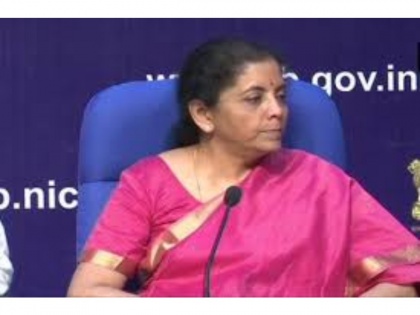Union Budget 2020: Date, time and expectations
By Lokmat English Desk | Published: January 27, 2020 02:26 PM2020-01-27T14:26:48+5:302020-01-27T14:35:08+5:30
Finance Minister Nirmala Sitharaman will present her second Union Budget on February 1. The 2020-21 budget is expected to ...

Union Budget 2020: Date, time and expectations
Finance Minister Nirmala Sitharaman will present her second Union Budget on February 1. The 2020-21 budget is expected to have a plan of action to fight economic slowdown. In the July-September quarter of FY20, GDP growth has already declined to a six-year low level of 4.5%, with the current fiscal's direct tax collection falling for the first time in the negative zone.
Budget 2020 date, time:
The Budget session of the Parliament will begin on January 31 at 11 am with a speech by President Ram Nath Kovind who will address a joint session of both Lok Sabha and Rajya Sabha. Chief Economic Adviser KV Subramanian is likely to table the Economic Survey in the Rajya Sabha the same day.
Union Budget 2020 will be presented in the Parliament on February 1 at 11 am, according to the Lok Sabha calendar. Since 2017, the Narendra Modi government has merged the Railway Budget with the Union Budget and also advanced its date by a month. Earlier, the Union Budget was unveiled on the last day of February.
This year's February 1 is falling on a Saturday when the Parliament is usually shut. Even stock exchanges, which are closed on both days of the weekend, have decided to conduct business on Budget day like any other weekday. Share market traders and investors will not have to wait till Monday to react to any Budget announcements by Nirmala Sitharaman.
Banking services, however, could be affected on February 1 as the unions have decided to sit on a two-day bank strike over wage related issues from January 31. Banks are open on the first, third and fifth Saturdays of every month.
Budget expectations:
One of the biggest challenges before the Modi government is to rescue the Indian economy from a slump. The statistics ministry expects the economy to grow at 5% in the current fiscal, the slowest pace of annual growth since 2012-13. Making things tougher, retail inflation also shot to a five-and-a-half-year high of 7.35% in December.
After a cut in effective corporate tax rate from 35% to 25%, finance minister Nirmala Sitharaman is now widely expected to provide similar relief on income tax to the middle-class as well. The finance ministry may allow individual taxpayers to pay a lower flat rate of tax if they forego all exemptions.
There are reports that the government might also give relief on long term capital gains (LTCG) tax and dividend distribution tax (DDT) to cheer stock markets. Any stimulus measures would, however, be limited by fiscal constraints.
(Mint)
Open in app